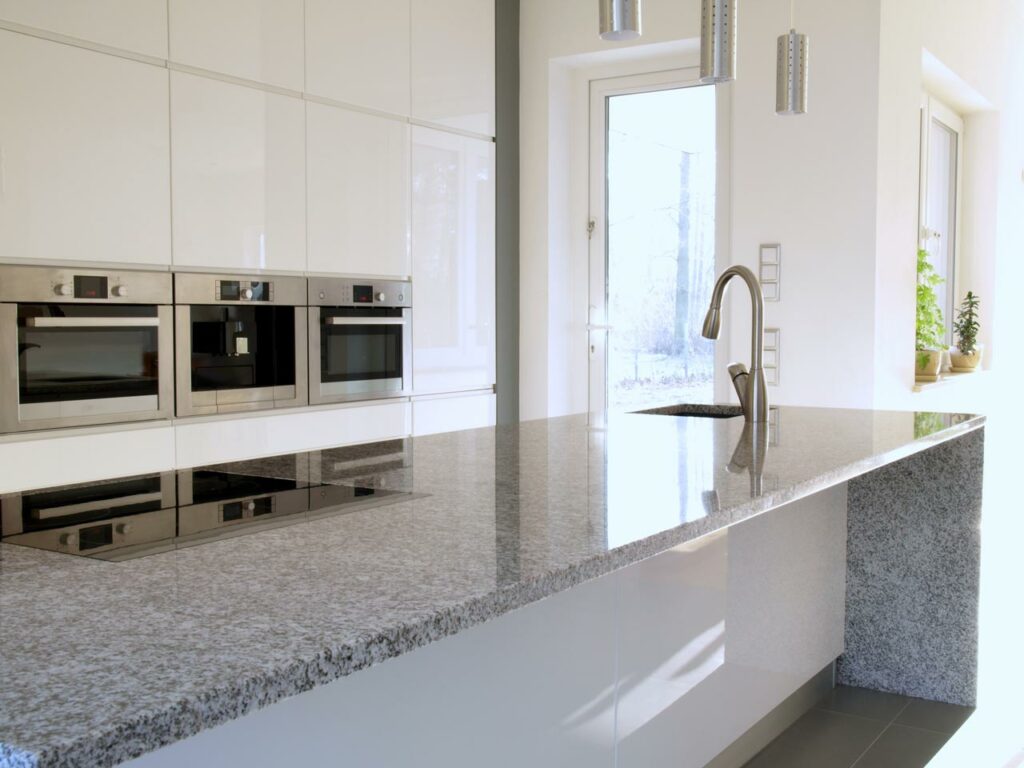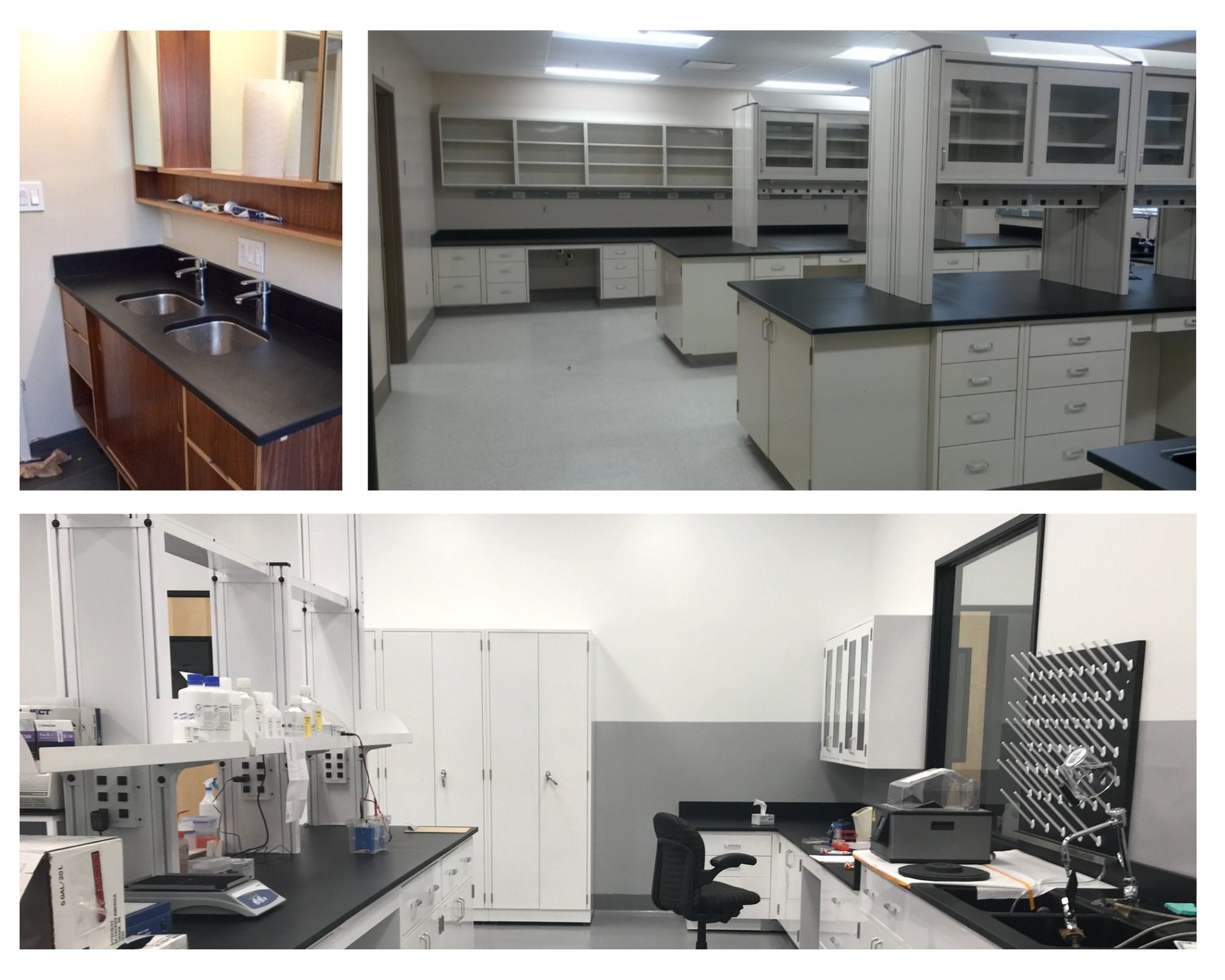Epoxy countertops have become popular choices for home renovators, and kitchen and bathroom DIY-ers for their reliable quality that does not break the bank. The results are stunning and unique, but their drawbacks should also be considered.
Let’s look at their advantages and disadvantages to help you make a better choice.
What are Epoxy Countertops?
Epoxy countertops are made from:
- Resin – a liquid that dries to form epoxy
- Hardener – enhances the quality of resin so it’s easier to apply
- Color pigment – determines the shade or tone of epoxy
- Special additives – enhance the strength and appearance of epoxy like glitter, metallic powder, acrylic paint, spray paint, liquid epoxy dye, etc.
Epoxy is a refinishing product that protects counter surfaces from spills and stains. Its nature complements most countertop materials like:
- Concrete
- Ceramic
- Metal
- Wood
- Laminate
- Formica
How Are Epoxy Countertops Made?
Epoxy uses industrial machines that synthesize natural materials to mix the above-mentioned contents to create a material that creates a smooth, solid finish.
Depending on the ingredients used and type of mix, the result is a robust countertop finish that is about 1/8 inch glossy, crystal clear, or textured.
Epoxy Resin Application Tips
Applying epoxy resin to countertops involves careful preparation and mixing to get the desired finish. Here are some tips and reminders:
- Thoroughly clean the old countertop because solid stains and debris left on the surface may get in the way of getting a polished finish.
- Protect the cabinets, floors, and other surrounding surfaces with a plastic cover, and use woodblocks to keep epoxy from flowing out. Epoxy is in liquid form before it hardens, and it can flow in between tiles or stain surfaces.
- Start with a thin layer. The first layer will act as a seal. It will help you even out the following applications of the epoxy surface. It will also keep air bubbles from forming later on.
- Work fast as epoxy resin hardens within 20 to 30 minutes after mixing. If air bubbles appear, use a hairdryer to remove them immediately.
- Let the sealing layer dry before applying a second coat. It may take a few hours for the epoxy to dry. If you wait long enough, you will get ideal results for the countertop finish.
Pros and Cons of Epoxy Resin Countertops in Your Kitchen
There are many good reasons to use an epoxy coating on your countertop, but there are also drawbacks that should be considered carefully to avoid remodeling mistakes later on.
Advantages of Epoxy Countertops
Extremely Durable
The epoxy coat forms a durable and glossy layer when properly applied and dried. It offers long-term protection from scratches and chipping and does not stain easily.
Heat and Moisture Resistant
Epoxy countertops are moisture and heat-resistant. Hot plates or pots and ice buckets or cold glasses don’t affect its finish.
Disclaimer: This heat-resistant nature should not be confused with heatproof. Epoxy countertops have a heat resistance level. Check this with the manufacturer of the epoxy kit that you will use.
Non-Toxic
Most pre-made epoxy countertops in the market are non-toxic. They are safe for cooking and food preparation.
Easy to Clean
Epoxy countertops require simple cleaning and are good with most cleaning products. Even soap and water on a damp cloth will do.
Has Multiple Design Options
You can create different patterns using the different color pigments of resin. You can also play with different finishes, like metallic and opaque, using those with glitter and powder additives.
Disadvantages of Epoxy Countertops
Messy Application Process
As mentioned earlier, using epoxy to laminate countertops requires plastic covers and wooden blocks. Still, the actual process can be messy because of the material’s fluid nature which runs like honey. Plus, you have to be quick to wipe it off when it drops on a surface where you don’t intend to apply it. Otherwise, it will stick for good.
It’s also advisable to wear gloves, closed shoes, and protective clothing when working with resin. Hard epoxy is extremely hard to remove when it gets stuck.
Requires Professional Expertise
While it’s not impossible to DIY an epoxy resin project, it requires handiness. Air bubbles easily form as you apply the mixture, and not removing them immediately results in a rough or lumpy countertop surface.
Epoxy Countertop Design Options
Resin is often used to create personalized designs. Since it’s clear and durable, it makes for a great medium for mosaics. You can embed coin collections, broken glass, ceramic chips, pebbles, and shells on your countertop using this material.
You can also upcycle live edge wood using resin. Opt for a colored mix, and you can have a stunning island kitchen counter.
Epoxy kits can also come in granite, marble, and natural stone finishes. You can use them to play with patterns and visual textures
Creating Your Own Epoxy Countertop Colors
You can DIY epoxy countertops. As with regular paint, create different epoxy resin countertop shades and finishes by mixing different tints and shines.
It all starts with a base color, which is often white, red, silver, gray, red, and copper. Then, the accent color or glitter mix is added to create patterns of swirls and veins.
Epoxy Countertops Cost
Unlike materials for countertop coats, epoxy is cost-effective. You can expect to spend $3 to $8 per square foot plus labor, depending on the following factors:
- Whether you hire a professional or you do it yourself
- Size of the countertop
- The thickness of the layer you want
- Brand and quality of the epoxy material
- The thickness of the epoxy layers
How to Clean Epoxy Countertops
Cleaning epoxy resin countertops properly prolongs their lifespan. Here’s how:
- Avoid using bleach, scouring pads, and corrosive chemicals, so you don’t lose the high gloss finish of the surface. Instead, apply baking soda paste (1/5 water plus 4/5 baking soda) to get rid of light stains. Let it sit for 5 minutes then wipe dry with a clean cloth.
- There’s no need to polish or wax the epoxy countertop unless the manufacturer recommends so. You can simply use mineral oil to polish it. Put some on a rag and wipe the surface.
- For tough stains, use acetone or paint thinner. Wipe in circular motions using a rag.
Make Your Epoxy Countertops Durable With Resin Tops
As with most home renovation materials, epoxy resin has its own set of strengths and weaknesses. The choice comes down to your budget and desired design.
For a high-quality phenolic resin countertop, racks, sink, pegboard, and balance tables, choose Resin Tops.
We have over 30 years of design and sales experience in the lab furniture designers and epoxy countertops industries. Trust that our experts can help you succeed in your lab or home improvement project.
Request a free quote today by filling out our contact form or you may call us at 800-476-5228 at ResinTops.net today


